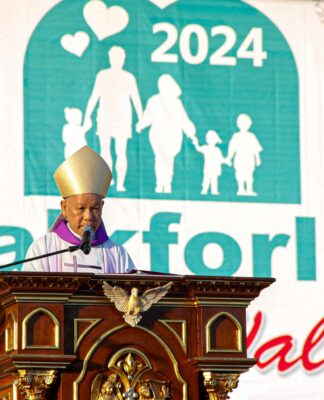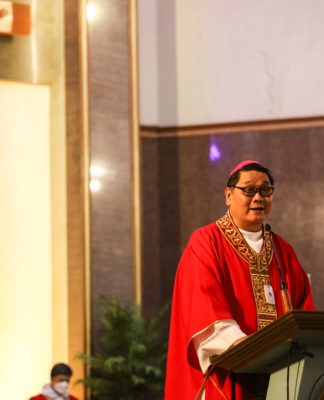ITS NAME means a spring where animals gather and drink to nurture their needs and restore their strength. And truly, the people behind the soon-to-be-born Tubugan Research Center envision it to be a place where people may re-learn the importance of nature, and hand-in-hand, appreciate and protect its legacy.
Committed to promote Philippine cultural heritage as well as protect and preserve our environmental resources, the UST Center for Conservation of Cultural Property and Environment in the Tropics (CCCPET) is set to establish a satellite center in Brgy. Imelda in San Juan, Batangas this October. UST Secretary General and CCCPET director Rev. Fr. Isidro Abaño, O.P, and Mayor Rodolfo Manalo of San Juan, Batangas finalized the agreement early this year.
A brainchild of Prof. Eric Zerrudo of the Cultural Heritage program of the UST Graduate School, the satellite center will focus on observing and preserving the mangrove sites near the town. A yearlong study by Zerrudo and his students showed that the site is actually a vast feeding ground for fishes because of its rich vegetation and coral bed. Hence, it is ecologically, economically, and socially significant to the town.
“It’s a whole chain, kapag buhay ‘yung mangroves, buhay rin ang ecosystem, pati ang community,” said Cynthia Loza, one of the students under the program.
Aside from being a monitoring arm, the satellite center will also cater to research studies from various fields of specialization like cultural mapping and conservation planning. It aims to become a model project that prioritizes nature and culture preservation, and at the same time contribute to the welfare of communities surrounding it.
The local town folk have been more than willing to help. Their eagerness and the group’s hard work promise the success of the project. Loza said a family even donated a 280-square-meter lot on which the center will be built.
Students and alumni of the Cultural Heritage program will also be involved in its construction and design, with the help of Tagapangalaga ng Kagalingan at Karalangang Yaman (Karaya), a newly formed student organization in the Graduate School.
“We are only doing our share as citizens,” Loza said. “It’s not an outreach program but rather it is something we can learn and benefit from through education. Benefits will be long term and we will try to help sustain living. Good living.”
The group may be small in number but they are certainly big in heart. Their combined efforts and hard work promise a hope not only for the environment but also for the culture and for the people.
















